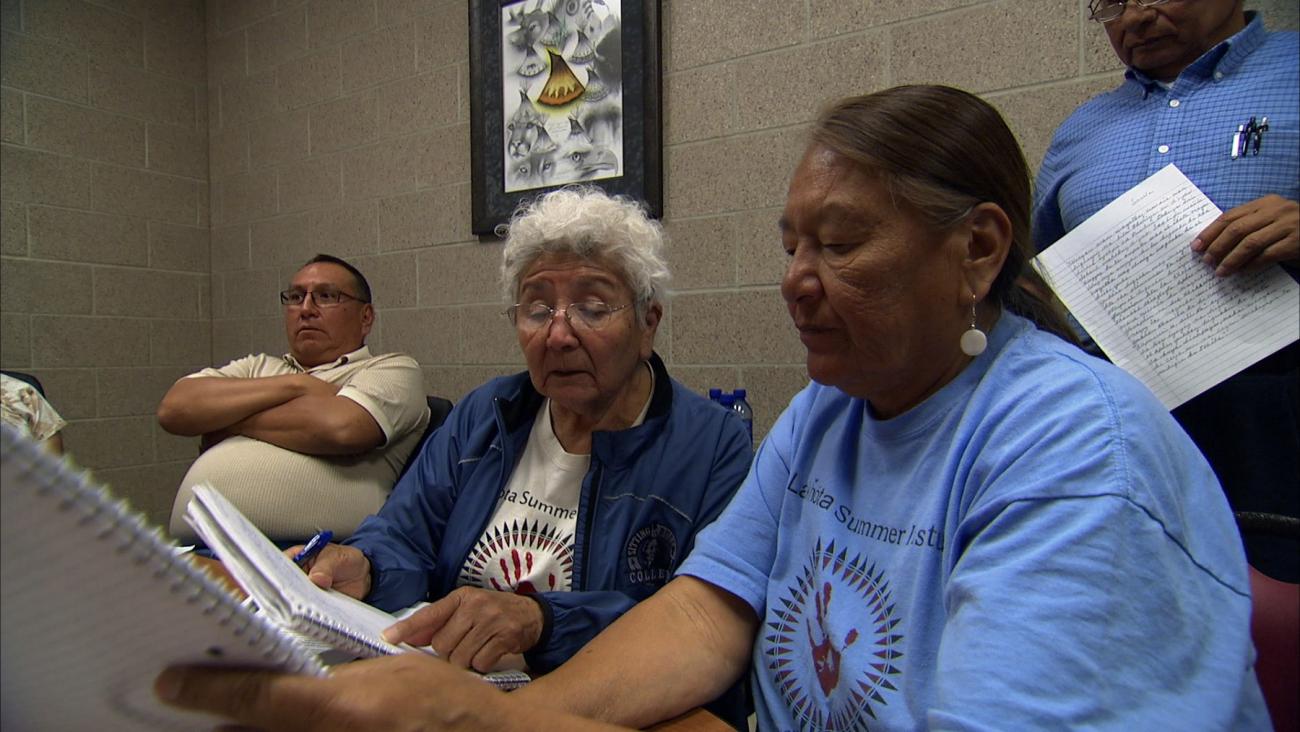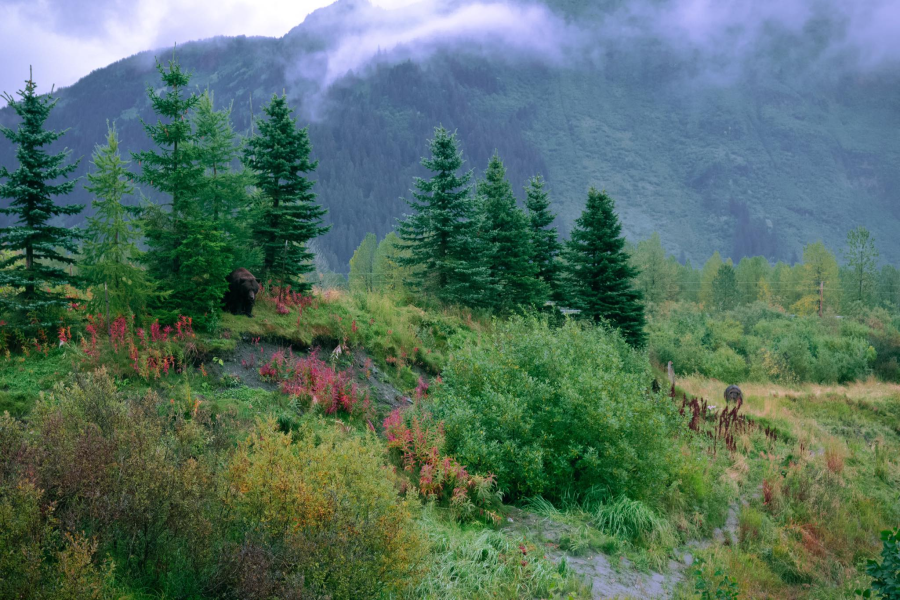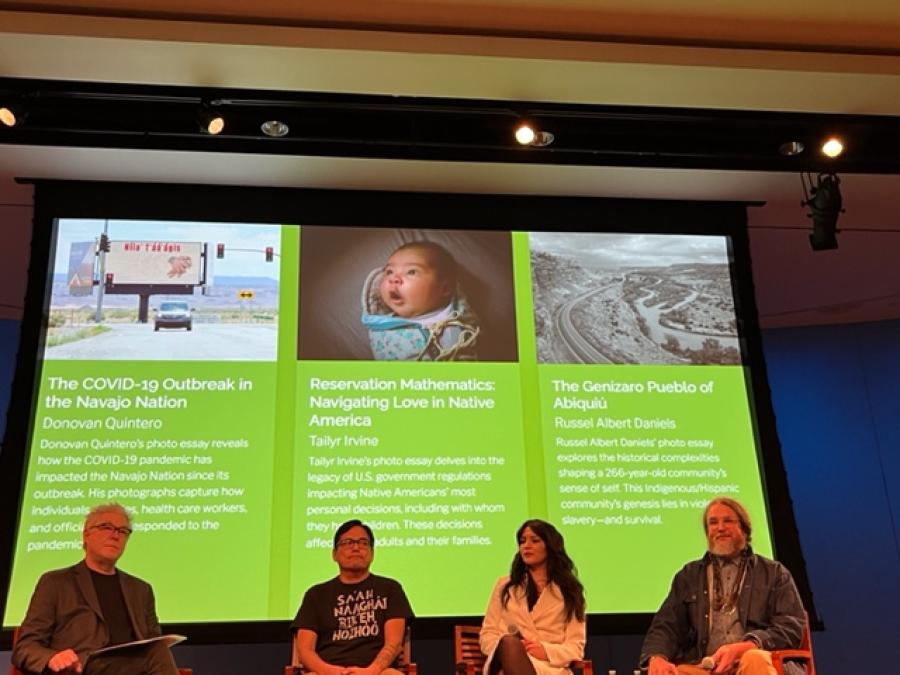
By Alexis White-Mobley
In an increasingly interconnected world, a global community seems ideal. The English language, symbolic of so-called globalization, is used almost everywhere for commerce, trade, and bridging common humanity between disparate cultures—but at what cost? The documentary film Rising Voices/Hótȟaŋiŋpi, directed by Lawrence Hott and Diane Garey in partnership with The Language Conservancy, examines a culture that has witnessed its language being replaced by English over the last few centuries—the Lakota Nation of the American Great Plains. This situation is not limited to North America—according to one speaker in the film, “it’s a universal problem.” With globalization, cultures all over the world are losing this integral aspect to their unique understanding of reality. Nevertheless, due to the Lakota Nation’s iconic status in American popular culture, it proves useful to pinpoint the problems and creative solutions faced by Lakota people in trying to keep their language alive.
Rising Voices features segments of four films from Lakota filmmakers alongside the voices of educators, a museum administrator, and families to illustrate the state of the Lakota language and its speakers’ hopes for its future. The general consensus is that language is essential to culture and individual identities; however, people recognize that due to historical circumstance and current issues, not everyone has the opportunity to learn how to speak it. A young woman featured in the short film “Renelle White Buffalo Paints Lakota,” doesn’t speak Lakota, but lets her cultural memory flow in the form of a brush on canvas. The filmmaker Dana Claxton’s experimental piece “Tradition Transformation” depicts a high fashion shoot featuring traditional Lakota regalia and artwork. These visual articulations point to the understanding that language is not completely representative of a culture. In Milt Lee’s short film “You Got It,” a series of Lakota youths are questioned about what it means to be Indian today and where the language fits in—many of them don’t speak it but feel that has no effect on their identity as Lakota people. Others, however, feel strongly that the language should not be allowed to die.
Despite a painful history of U.S. invasion into Lakota homelands and forceful assimilation along with an array of contemporary issues on the reservations, the fire of the language is still being fanned. Rising Voices highlights numerous efforts across the Lakota Nation to teach it to all age groups. The fourth short film featured, “Verb Phrases in Lakota” by Alayna Eagle Shield shows the filmmaker’s 3-year-old daughter being asked questions about what she’s doing in Lakota, and her energetic responses. In another clip, a basketball coach explains how he integrates the language into practice and games of the most popular sport on the reservations.
The filmmakers show the different efforts to keep the language alive - they visit several immersion programs, from the preschool to elementary school level, as well as adult classes; they speak with a couple – a husband and wife who are learning the Lakota language themselves and labeling objects in their homes to teach their children; and they listen in on a project in progress to record all 22,000 words in the Lakota dictionary. Though some educators feel that classroom teaching is ineffective, that it must be spoken outside of the classroom for speakers to truly become fluent, Rising Voices indicates that hope remains for the Lakota language’s revitalization. One educator mentions the importance of allowing the language to spread wherever it may—“It’s ours but it’s ours to share with everybody. If someone wants to learn it we’ll help them learn it.” The film thus provides a deeply humanistic look at a tragic reality of the common era, and a people’s perseverance to keep teaching and learning their language regardless.
See the broadcast dates and learn more here: http://risingvoicesfilm.com/broadcast-dates/
Photo: Delores Taken Alive and Sandra Black Bear. Courtesy of Rising Voices.



